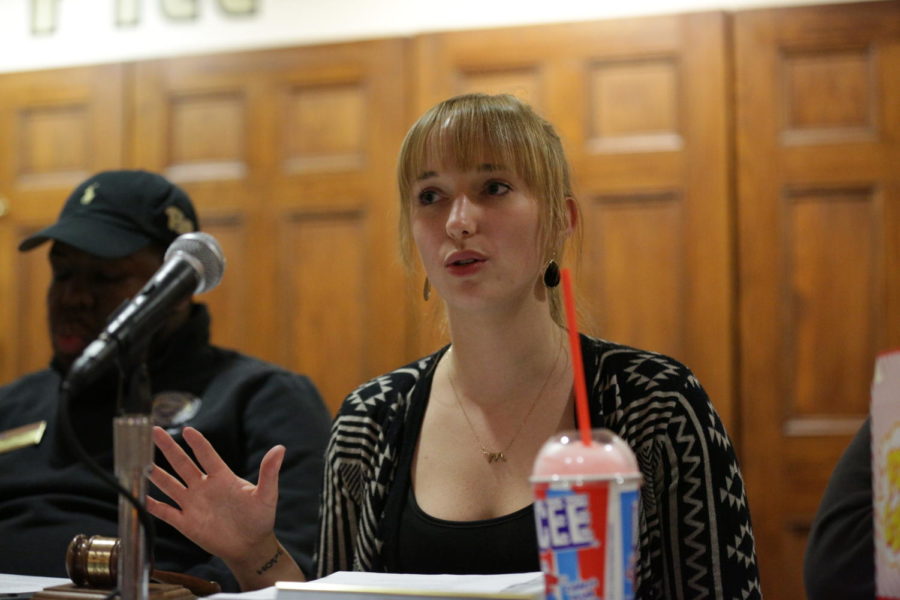SGB looks ahead to elections, empowerment
Thomas Yang | Assistant Visual Editor
In a brief Tuesday night meeting, the Student Government Board discussed their goals for the semester ahead.
January 9, 2019
Pitt’s Student Government Board returned Tuesday for a shorter-than-usual meeting, where board members previewed their planned projects for the spring semester before unanimously passing a bill that reforms the SGB election process.
The election is approaching quickly. The board’s Elections Committee released candidacy packets Monday, which are due Jan. 22 for the Feb. 19 election. The packets, which contain information for prospective board candidates, can be picked up in SGB’s office on the eighth floor of the William Pitt Union.
“We had 11 or 12 people run for board last year,” Katie McLaughlin, who chairs the committee, said. “This year we’re hoping to at least match that number.”
The bill passed Tuesday night includes several updates to SGB’s election code that could help make that dream a reality. The bill lowers the financial commitment candidates must make to run for president and other board positions by reducing the deposit fee from $100 to $50. The bill also includes measures to reimburse campaign expenses for candidates.
“We wanted to tweak a few things to make it more accessible for everyone to run,” McLaughlin said. “Running a campaign is actually a really big financial burden.”
The board aims to simplify the voting process as well, unveiling a special url for voting in this year’s elections — elections.pitt.edu — instead of my.pitt.edu, which voters used in previous years.
President Maggie Kennedy hopes to follow up the success of SGB’s November Pitt Women’s Leadership Experience with a strong Women’s Empowerment Week, an annual event for the board which will take place sometime in March.
“We have a committee with a ton of different women from different organizations on campus,” Kennedy said. “We’re hoping to meet this week to begin planning and determine who our speakers are gonna be.”
Several task forces are in the works as well. Among them was one that could help diversify cuisines at Pitt’s dining halls. Board members Zechariah Brown and Albert Tanjaya, who organized last semester’s Eat and Greet events, have several more planned for the spring. The Eat and Greets offer students a chance to provide feedback on Sodexo’s food selection in the various dining halls on campus and each feature a free meal with a specific theme.
“When the Eat and Greets involve a certain culture’s cuisine, we want to make sure they’re being accurate and culturally competent, and that extends to what food Market and the Perch actually put out,” Kennedy said.
Board member Cole Dunn discussed his plans for another task force that aims to partner with companies to sponsor exams for graduate school. This initiative, he said, would substantially lift the financial burden for lower-income students applying to grad school.
“The secondary testing for schools — MCATs, LSATs — is expensive,” Dunn said. “We’re trying to bridge the gap between rich and poor students by offering subsidies.”
Eric Macadangdang, wellness committee chair, hopes to move ahead with the committee’s plan for a smoke- and tobacco-free campus. The initiative began in the School of Public Health, Macadangdang said. He and Brown worked together last semester to move the project forward, drafting a policy that would ban tobacco use on campus.
“We have a survey that went out, pretty good support from the undergrad population,” Macadangdang said. “We’re gonna present it to the University Senate and hopefully it’ll get passed before the semester ends.”








